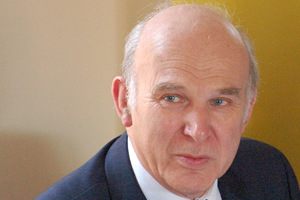
This is in comparison to figures by the Office of National Statistics (ONS) that showed national numbers to be around 250,000.
Business Secretary, Vince Cable, is reviewing the use of such contracts but, despite controversy over their use, some members of the event industry rely on them to keep their businesses afloat in what is a seasonal environment.
Colin Sayers, managing director of Seasoned Events, told Event: "Zero-hours has always been part of the event and hospitality industry. Using casual or temporary staff is how we manage the peaks and troughs throughout the year, and this also allows the business to keep lean when it’s not busy. It has become a necessary part of how we do business."
However, he said if an individual consistently works over 40 hours a week for 12 weeks, they will become a permanent staff member.
The Crown Group also runs an agency called Jobs 2 Go, which employs hundreds of workers on zero-hours contracts.
Sayers added: "The contract initially suits the staff just as much as it does the employer, with relaxed relationships which offer variety, experience and flexibility of hours.
"On the down-side, it means you need a bigger pool of staff, as you never know when someone might be busy. Other industry sectors may see this as a way to abuse the employee rather than looking at the benefits of hiring casual staff."
James Morgan, director of ISES UK and marketing director of staffing company, Crewsaders, said: "In terms of the industry it depends on an individual basis and the characteristics of those businesses as to whether or not zero-hours contracts are necessary.
"If you have a venues company that’s working nine-to-five, seven days a week you probably don’t need them, but in terms of production where you have a lot of seasonal work I can see the point of them. "
Morgan explained the problem with zero-hours contracts is maintaining consistency – if an employee is on a zero-hours contract they may well be signed up to a number of agencies and therefore employers cannot guarantee their availability for work.
Others in the industry, however, are firmly against the use of such contracts.
Tom Eatenton, managing director of staffing agency Kru Live, said: "How can you expect long-term thinking, reliability or commitment from those working for you if you give none back?"
Critics of the contracts say they allow employers to avoid paying benefits such as holiday and sick pay to workers.
Chief executive of the CIPD, Peter Cheese, said: "Zero-hours contracts are a hot topic and our research suggests they are being used more commonly than the ONS figures would imply. However, the assumption that all zero-hours contracts are bad should be questioned."
Are you for or against zero-hours contracts? Comment below to let us know what you think.
For more in-depth and print-only features, showcases and interviews with world-leading brands, don't miss the next issue of Event magazine by

